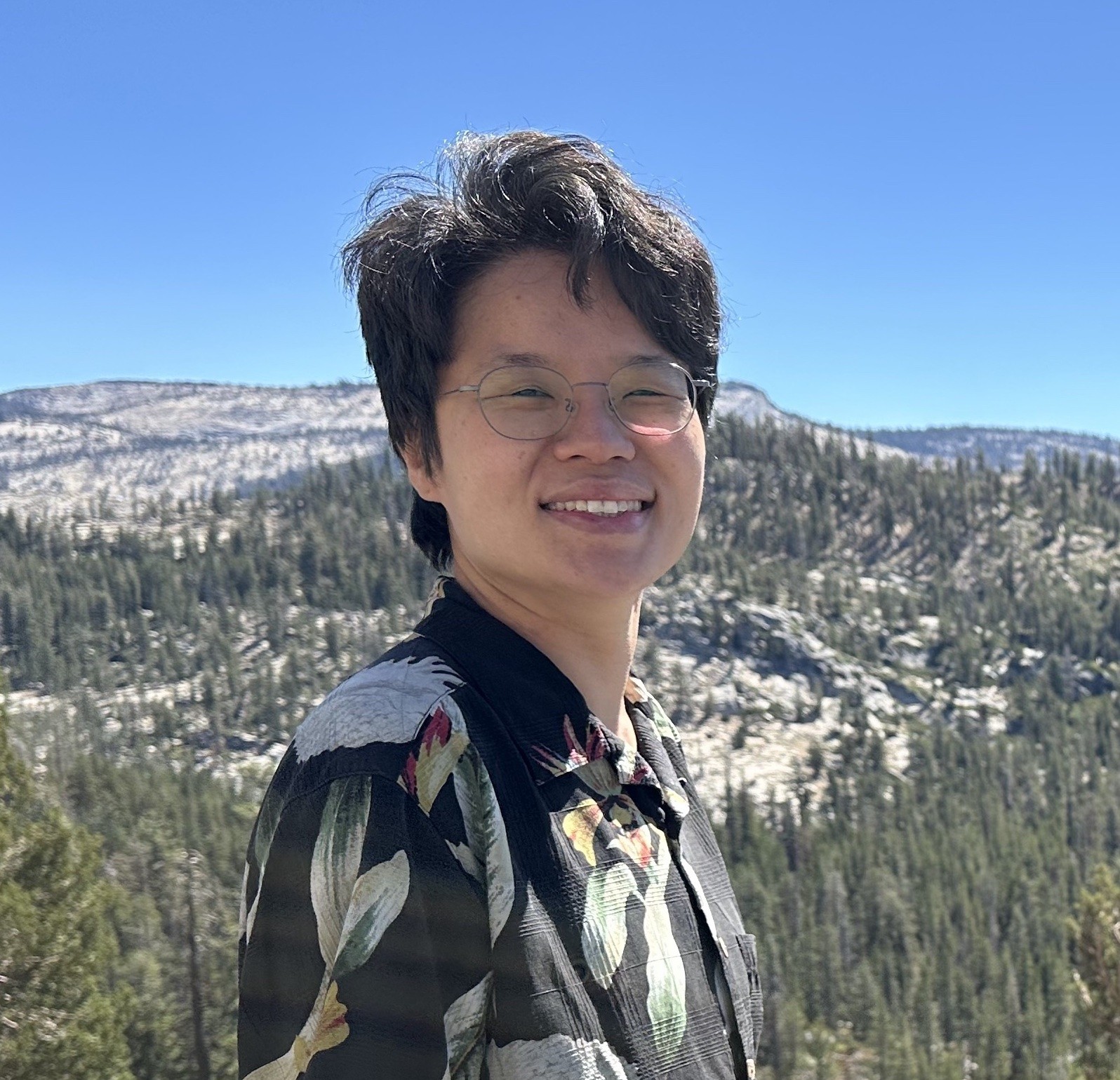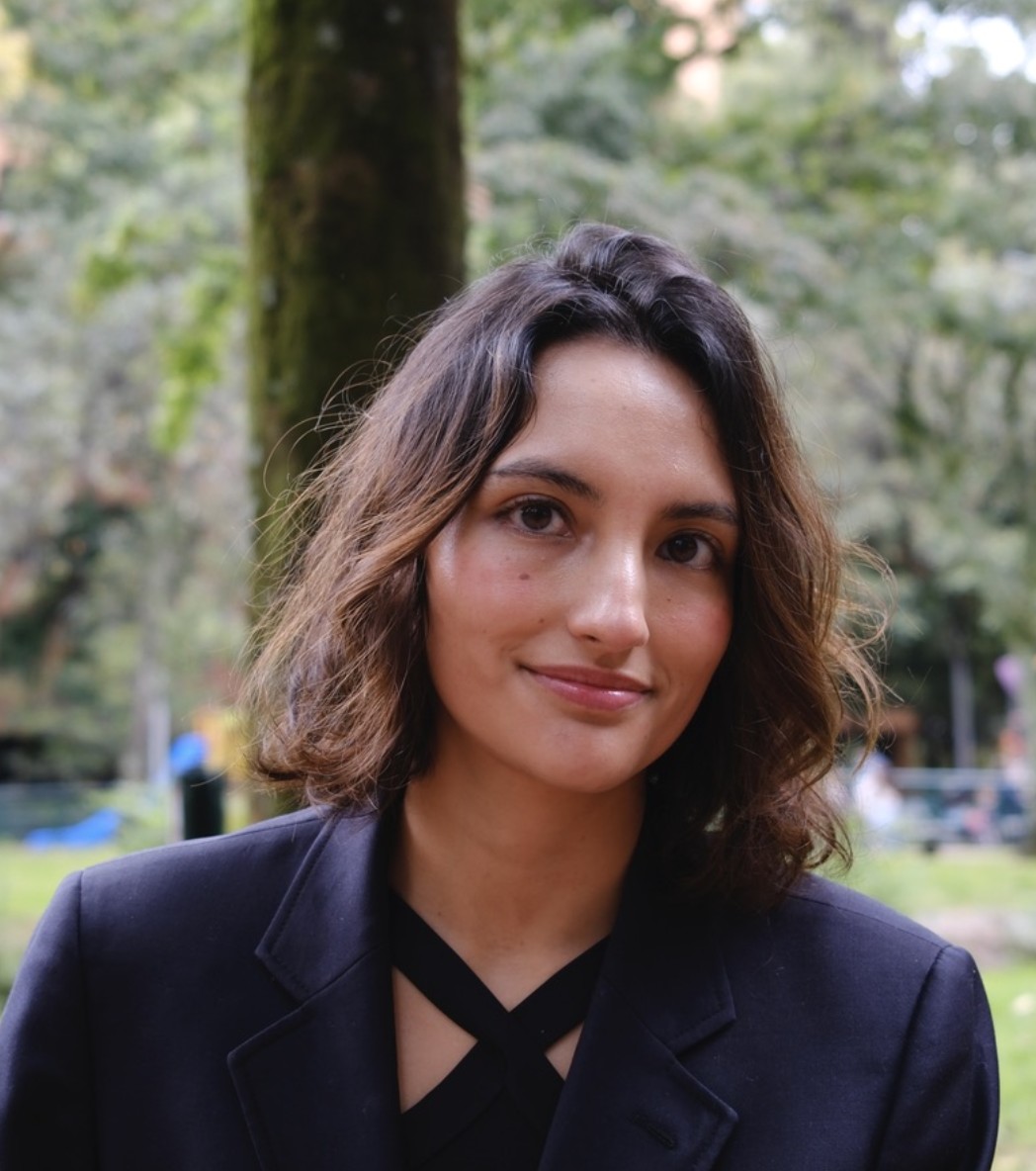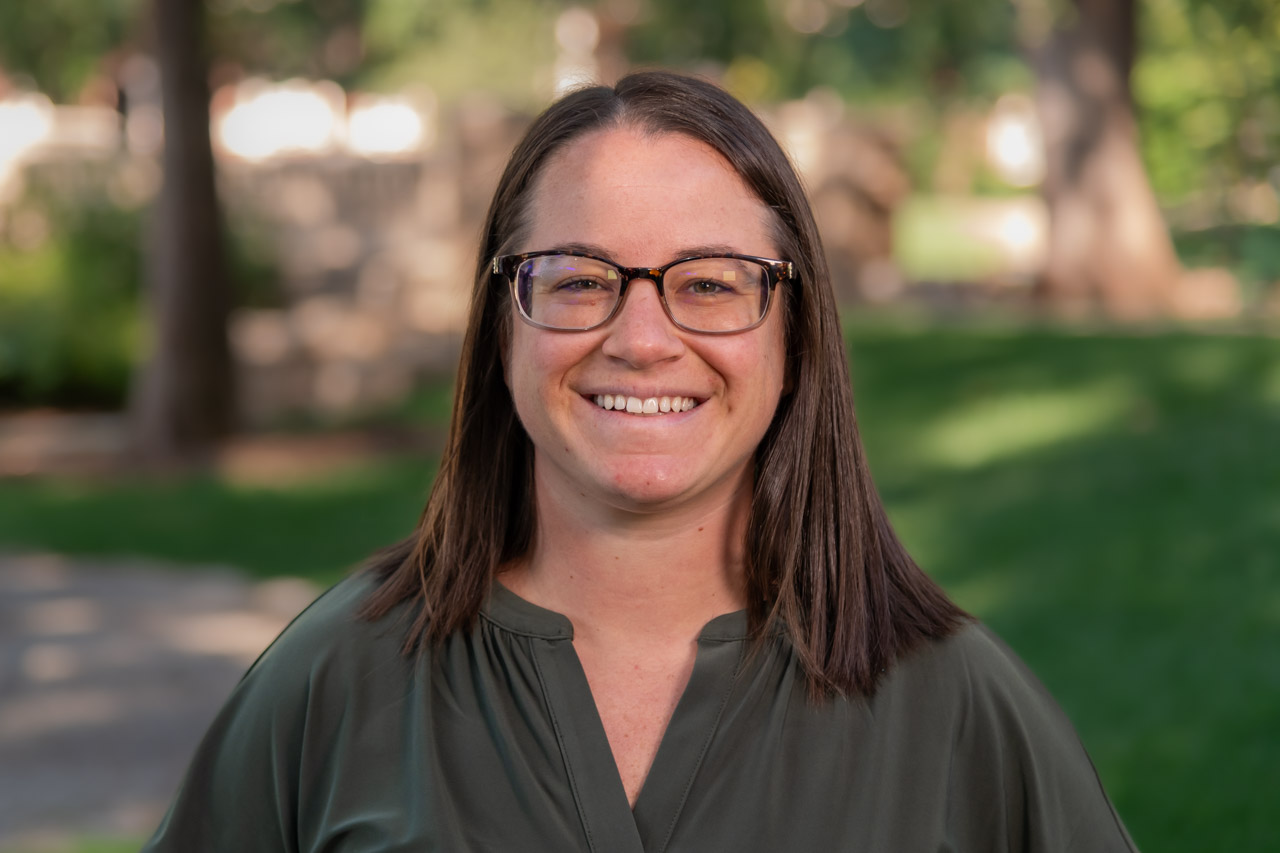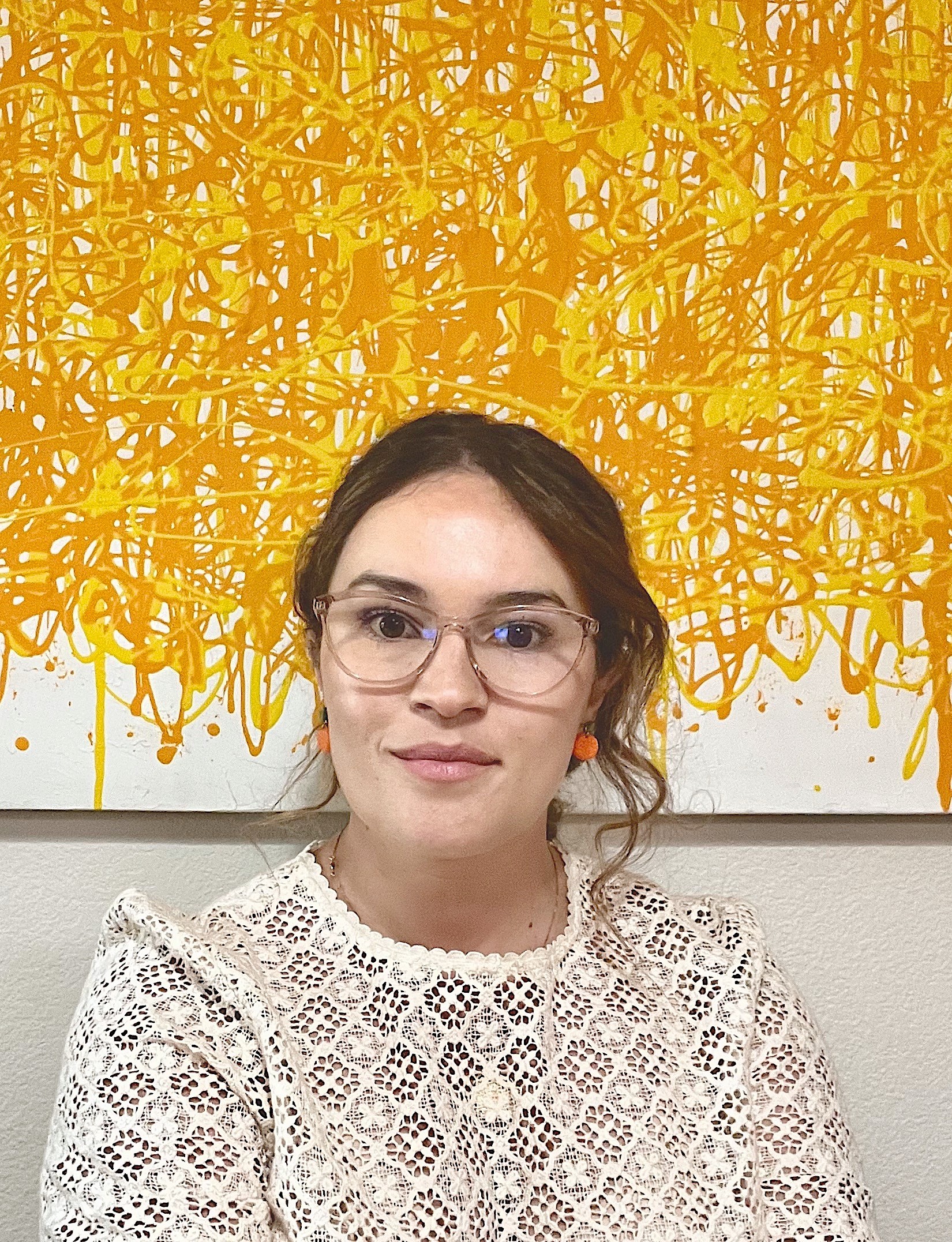2025 Student Paper Competition Winning Abstracts
Congratulations to the student paper competition winners and honorable mentions! The student paper competitions awards are proudly sponsored by the Divisions.
CONFLICT, SOCIAL ACTION, AND CHANGE DIVISION
Winning Title: “Mentioning the Unmentionable: Perception of Opportunities, Agency, Emotions, and Identity in Iranian Resistance Rap prior and during the Women, Life, Freedom Uprisings”
 |
Author: Danial Vahabli
Affiliation: Stony Brook University
E-mail: danial.vahabli@stonybrook.edu
Abstract: Scholarship on resistance in a strong authoritarian context focuses on everyday acts of resistance and loose solidarity networks prior to protests and overt discursive resistance during the protests. These trends are disjointed since they ignore the discursive spaces surrounding dissidents in their everyday life. To bridge this gap, I introduce “discursive nonmovements” which refer to latent, diffused, and non-institutional spaces which serve as gravity centers for loose solidarity networks prior to protests and transform to protest discourses during it. By focusing on the case study of Iranian rap prior and during the Women, Life, Freedom movement, I show how songs have changed from implicit, hopeless, allegorical, and melancholic to explicit, hopeful, and vengeful. Further, by relying on phenomenological approaches to political opportunities structures, I argue that “mentioning the unmentionable” after years of implicit discursive resistance, serves as a public open invitation to ordinary citizens to engage in extraordinary acts of resistance.
CRIME AND JUSTICE DIVISION
Winning Title: “Shuffling within the System: The Pervasive Uncertainty of Prison Transfers"
 |
Author: Iolanthe Brooks
Affiliation: Northwestern University
E-mail: iobrooks@u.northwestern.edu
Abstract: Prisons presumably represent paradigms of immobility and enclosure. Yet, going “to prison” means moving between a procession of facilities. Much like other state-funded institutions, from foster care to halfway houses, forced movement is a common part of incarceration. Building on literature about cross-institutional “people exchanges,” I use the case of prison transfers in New York State to argue that incarcerated people experience within-system shuffling as punitively uncertain, both at the scale of discrete transfers and in their accumulation. Drawing first on an original dataset of transfer records, I demonstrate that within-system shuffling is a pervasive aspect of prison management, with New York averaging one transfer per person incarcerated in 2022. In interviews with 52 formerly incarcerated people, many conceptualized transfers as flexible tools that administrators used to offload individuals whom they found difficult. Transfer experiences, however, went beyond such individual occurrences. As transfers accumulate across a sentence and in others’ moves, they destabilize incarcerated people’s relationships, with far-reaching implications for daily life, rehabilitation, and reentry. These findings demonstrate, first, the prevalence of within-system shuffling as an undertheorized aspect of state institutions; and second, how these administrative decisions reverberate and accumulate, deepening prison’s uncertainty.
CRITICAL RACE AND ETHNIC STUDY DIVISION
Winning Title: “Complicating Conceptualizations of Anti-racism within the Abolition Movement through Monoracism and Black/White Multiraciality”
 |
Author: Alizé B. Hill
Affiliation: The University of Chicago
E-mail: alize@uchicago.edu
Abstract: In the United States, the abolition movement originated in the 1800s to end slavery but experienced a resurgence as a result of Black solidarity movements such as The Black Power Movement and Black Lives Matter Movement. The abolition movement is fundamentally a call to the past, reminding us that slavery is at the foundation of the United States, an appeal to undo systems of harm and oppression in the present, and a vision of a future built on the foundations of care and community rather than exploitation. However, current conceptualizations of race and racism within the abolition movement overlook monoracism, which is directed toward those who do not align with a single racial identity. The perpetuation of monoracism indicates the existence of racism more broadly, and only by attuning to the experiences of multiracial individuals can we begin to fully dismantle systems infused with racism and White supremacy.
Honorable Mention: “Border Disablement: How Embodied Borders Disable Latina Immigrants with Breast Cancer”
|
|
Author: Susana Echeverri Herrera
Affiliation: The University of New Mexico
E-mail: secheverri@unm.edu
Abstract: In this article, I introduce and theorize “border disablement” to challenge dominant frameworks that treat immigrant illness primarily as a matter of access or individual identity. To do so, I draw on feminist theories of borders and a disability justice framework. Focusing on the case of Latina women with breast cancer, I contend that the impact of serious illness among immigrants exceeds the influence of discriminatory immigration policies and healthcare systems. Instead, their illness experience emphasizes the violence inherent in borders, underscoring their fundamentally disabling nature. Based on 25 ethnographic interviews with Latina immigrants diagnosed with breast cancer, three dimensions illustrate how border disablement operates: 1) the diagnosis emphasizes how borders perpetually diminish care and support networks for women; 2) disease renders immigrant women invisible to support-providing institutions, and 3) breast cancer exposes them to additional border related racialized-gendered violence masked as medical benevolence. These insights contribute to an expanding body of knowledge that allows us to transcend disability as an identity, mapping social conditions that foster precarity and the disenfranchisement of immigrant people and communities. My findings bring feminist and disability justice frameworks to medical sociology and the sociology of immigration.
EDUCATIONAL PROBLEMS DIVISION
 |
Winning Title:“Transitional Justice Mechanisms, Collective Memory, and Teaching Practices”
Author: Jillian P. LaBranche
Affiliation: University of Minnesota
Email: labra032@umn.edu
Abstract: This comparative study examines how Rwandan and Sierra Leonean secondary school teachers negotiate narratives generated by transitional justice mechanisms (TJMs) when educating youth about their countries’ histories of violence. In both countries, TJMs have generated collective memory. However, the degree to which these narratives have been institutionalized within national curricula differs. The Rwandan government enforces a singular historical narrative found in state-sponsored texts, while Sierra Leone’s lack of state-mediated memory leaves teachers with greater discretion in their classrooms. Informed by 60 teacher interviews and over 20 hours of classroom observation, the study reveals that teachers in both contexts adopt TJM narratives, reflecting their specific institutional logics, even when these narratives have not been incorporated within educational materials. Drawing upon literature from the sociology of knowledge, comparative and international education, and memory studies, this article underscores the complex relationship between state power, TJMs, and educator narratives. These findings contribute to a growing body of research on post-conflict history education, suggesting that TJMs play a crucial role in how historical trauma is understood by educators and taught to future generations.
Winning Title: “Comparison of Bias-based Bullying and Non-bias-based Bullying: Prevalence Rates, Impacts on Students, and the Buffering Role of Social Support”
 |
Author: Zehra Sahin Ilkorkor
Affiliation: Virginia Commonwealth University
E-mail: sahinilkorz@vcu.edu
Abstract: This study compares bias-based and non-bias-based bullying in terms of their prevalence rates across years and their impacts on students’ self-esteem, social relationships, schoolwork, and physical health. The ordered logit model was conducted using a national sample of adolescents aged 12 to 18 in the United States to test the differential impacts of bias-based bullying and the buffering role of social support, as suggested by the Minority Stress Theory. The prevalence rates of bias-based bullying have been consistently increasing since 2015 whereas the prevalence rates of non-bias-based bullying showed a sharp decline in the 2022 school year. Bullying victims who report negative effects are more likely to have low and moderate than high levels of bullying impacts. For each level of bullying impact (low, moderate, and high), victims of bias-based bullying have a higher probability of having effects than victims of non-bias-based bullying. White students are more vulnerable to having high levels of bullying impacts on self-esteem while Asian students are more vulnerable to having high levels of bullying impacts on schoolwork, social relationships, and physical health. Social support ameliorates the negative impacts of bullying victimization and an increase in social support benefits the victims of bias-based bullying more than the victims of non-bias-based bullying.
Keywords: bullying, bias-based bullying, impacts of victimization, social support, prevalence of bullying
FAMILY, AGING, AND YOUTH DIVISION
Winning Title: “'Family Ties in Hard Times: Exploring the Role of Grandparent Coresidence in Household Economic Resilience”
 |
Author: Jayla Gray-Thomas
Affiliation: Rutgers University
E-mail: jayla.graythomas@rutgers.edu
Abstract: In times of economic uncertainty, families often provide an essential safety net, and one significant way this support is realized is through shared living arrangements. Among these, intergenerational households—where one or more grandparents coreside with their adult child and grandchild(ren)—are becoming increasingly common. These arrangements are often driven by financial need, as pooling resources and exchanging instrumental support is thought to attenuate economic strain. However, whether these living arrangements have the intended financial effect remains unclear. This research addresses this gap in the literature by examining how grandparent coresidence affects material hardship within households over time and identifying differences in material hardship between households with and without long-term grandparent coresidence.
Using data from waves 2-5 of the Future of Families and Child Wellbeing Study, a longitudinal dataset, this analysis includes 3,709 households and 14,836 level-1 observations. Material hardship is measured using a summative index of eight binary indicators of financial strain, and grandparent coresidence is treated as a time-varying independent variable. Hybrid models were used to decompose grandparent coresidence into between- and within-household effects.
The results show that between households, greater grandparent coresidence is associated with statistically significantly lower levels of material hardship, particularly in Black households and those classified as “Other.” However, within households, periods of grandparent coresidence do not result in statistically significant reductions in material hardship over time. These findings suggest that while grandparent coresidence provides a stabilizing effect when sustained long-term, this benefit varies by race. This research highlights the nuanced role of intergenerational living arrangements in mitigating household financial strain. I propose suggestions for future research to examine the potential selection effects and structural factors impacting the utility of grandparent coresidence as a strategy for resilience.
GENDER, SEXUAL BEHAVIOR, POLITICS, AND COMMUNITIES DIVISION
Winning Title: “'We Should Be Better Than That': Examining the Symbolic Significance of WMAF Relationship Stigmas”
 |
Author: Olivia Y. Hu
Affiliation: University of Pennsylvania
E-mail: oliviahu@sas.upenn.edu
Abstract: Drawing on 116 in-depth interviews with U.S.-born/-raised East Asian Americans in interracial/-ethnic relationships, I ask: (1) What cultural logics, racial ideologies, and subjective experiences underlie some later-generation East Asians’ stigmatization of White Male/Asian Female (WMAF) couples? and (2) What do intragroup disagreements over the meaning and significance of WMAF unions suggest about East Asian racial politics more broadly? Most East Asian women with White partners reported experiencing stigma from East Asian communities, and many expressed guilt around how their choice of a romantic partner may reflect negatively upon their commitment to Asian uplift. Meanwhile, a vocal minority of East Asian women with partners of color expanded the conceptual bounds of this sellout stigma to include a perceived disloyalty to all people of color, rather than solely to East Asian communities. Lastly, some East Asian male participants deployed sexual racism stigma when describing WMAF unions. These men invoked their negative experiences with East Asian women’s sexual racism when portraying WMAF unions as products of East Asian women’s exclusionary preferences. Ultimately, I argue that WMAF relationships are politically significant symbols that later-generation East Asians use to articulate both their apprehension towards assimilation and their complex orientations toward intersecting race and gender systems.
Winning Title: “Localization of Sex Testing: Transnational Knowledge Production of Sex”
 |
Author: Jinsun Yang
Affiliation: University of Oregon
E-mail: jinsuny@uoregon.edu
Abstract: This paper examines the introduction of international sex testing in South Korea’s women’s football league during the 2013-2014 season. The implementation of sex testing by global sports governing bodies has ignited intense debate among the public and experts regarding its objectives, criteria, legitimacy, and practices. Feminist scholarship has highlighted the imperialistic nature of sex testing, which disproportionately targets women of color while reinforcing Western ideals of femininity and body standards worldwide. However, there has been limited attention given to its local impacts. Through textual and media analysis, including formal documents from the sex testing debate in South Korea, 84 news videos, radio clips, and 2,042 online comments, this paper investigates how international sex testing is introduced into South Korea and contributes to the production of transnational knowledge about sex and gender policing. The term "localization of sex testing" is coined to describe how global discourses on sex testing permeate local contexts, particularly through the hierarchical relationship between global sports governing bodies and domestic leagues. The term also sheds light on the phenomenon where a female athlete’s body becomes a battleground between global gender policing and local understandings of sex. Finally, the concept of localization of sex testing reveals how Eurocentric gender norms, racism, and imperialism, the foundational forces of international sex testing, are reconfigured and reproduced within domestic cultures through the sex testing debate at the local level.
GLOBAL DIVISION
Winning Title: “Longing for the State: Women Grassroots Activists and Local State-building in Colombia”
 |
Author: Maria Ximena Davila
Affiliation: The University of Texas at Austin
E-mail: mxdavila@utexas.edu
Abstract: This article proposes a theoretical path for examining the everyday state-building practices enacted by organized grassroots women in contexts impacted by war, inequality, and low institutional capacity. Through ethnographic observations and interviews with 48 grassroots women activists (“lideresas sociales”) and 25 public officials from a rural, war-affected region in Colombia, I argue that the concept of longing provides a fruitful way to understand the complex interactions between women and local institutions in places with legacies of armed conflict. Given the history of armed violence and institutional neglect in Colombian rural regions, women mobilize their imaginaries of a longed-for state to transform local bureaucracies. Building on an alternative reading of longing, I contend that longing for the state involves both emotional and material forms of state-making. On the one hand, organized grassroots women collectively create imaginaries of the state that expand the emotional and symbolic boundaries of the public sphere. On the other hand, they materialize these imaginaries through their routine interactions with state officials or by undertaking the work of the state themselves. Finally, I place particular emphasis on the temporal implications of imagining and building a longed-for state. In contrast to the inconsistent, discontinuous, and delayed actions of state officials, women grassroots activists work with a sense of permanence and urgency. By exploring the ways in which women reshape war-aggrieved institutions, this article highlights forms of statehood that exist beyond the contours of public institutions and recognizes the agency of ordinary people in devising and constructing them.
HEALTH, HEALTH POLICY, AND HEALTH SERVICES DIVISION
Winning Title: “‘The Proof is in the Pudding’: A Qualitative Examination of the Weight-inclusive Healthcare Delivery from the Perspective of Weight-inclusive Healthcare Practitioners”
 |
Author: Gabby Gomez
Affiliation: Oklahoma State University
E-mail: gjgomez9@gmail.com
Abstract: In response to a burgeoning body of scholarship raising concerns about the current weight-centric healthcare paradigm’s ineffectiveness, harms, and contributions to health disparities, scholars, practitioners, and activists alike have called for a paradigm shift toward a weight-inclusive framework that de-centers weight and weight loss in healthcare and is better positioned to enhance health, well-being, and equity. Although recent media reports indicate that some healthcare practitioners have begun implementing weight-inclusive practice in their work, little is known about how practitioners enact weight-inclusive care in practice, how they perceive their patients’ and clients’ responses to it, or how they perceive it to impact their patients’ and clients’ health outcomes. This paper addresses these questions through an analysis of 85 interviews with weight-inclusive healthcare practitioners. I find that the delivery of weight-inclusive healthcare entails a variety of practices, including curating nonstigmatizing healthcare spaces and interactions, providing psychoeducation on weight science and diet culture, and making safe referrals. Participants generally reported their patients responded positively to this mode of treatment, often expressing relief and gratitude for the compassion and respect underlying weight-inclusive practices. Lastly, I find that weight-inclusive healthcare can enhance provider-patient relationships and mitigate healthcare avoidance, potentially improving health outcomes and equity. At a time when healthcare scholars and practitioners are opining ways to provide nonstigmatizing healthcare that can advance health and equity, these findings provide support for and highlight the importance of the continued adoption of weight-inclusive healthcare practices that decenter weight.
LABOR STUDIES DIVISION
Winning Title: “Checked Out: Coping and Cashiering in Retail Grocery Work”
 |
Author: Katherine L. Mott
Affiliation: Syracuse University
Email: klmott@syr.edu
Abstract: Through a seven-month workplace ethnography of an upscale retail chain grocery store and 40 semi-structured interviews with grocery store workers, I reveal how cashiers internally cope with the physical and emotional demands of customer service. I examine how a management regime of “contingent control” (Ikeler 2016) and emphasis on providing “world class” customer service forces grocery store cashiers to turn inward and develop coping strategies marked by self-discipline, escapism, self-blame, and radical empathy. In the absence of traditional career paths and economic uncertainty, grocery store cashiers construct narratives of self that keep them employed but unintentionally serve as barriers to collective action efforts. I discuss how understanding the internal coping strategies of service workers could better inform the labor movement’s approach to organizing the service sector.




